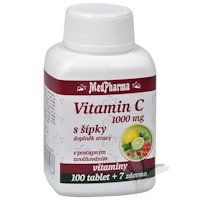
|
Some Common Myths Thought to be True - Myth 87
Myth 87: Vitamin C is an Effective Treatment for Common Cold
At the very first sign of cold symptoms, many people reach right for a bottle
of vitamin C supplements. Vitamin C for the common cold is such a widely
accepted treatment that we seek it out in lots of products, such as fortified
juices, cough drops, and tea. At the very first sign of cold symptoms, many
people reach right for a bottle of vitamin C supplements. Vitamin C for the
common cold is such a widely accepted treatment that we seek it out in lots of
products, such as fortified juices, cough drops, and tea.
|
| Vitamin C | |
|
In a July 2007 study, researchers wanted to discover whether taking 200
milligrams or more of vitamin C daily could reduce the frequency, duration, or
severity of a cold. After reviewing 60 years of clinical research, they found
that when taken after a cold starts, vitamin C supplements do not make a cold
shorter or less severe. When taken daily, vitamin C very slightly shorted cold
duration -- by 8% in adults and by 14% in children.
|
|
| ⇦ Back to Myth 86 Return to Myth Choices Page 7 On to Myth 88 ⇨ | |